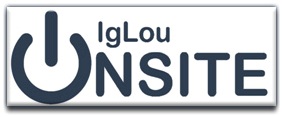Don’t Trust Doctor Google
If you’ve ever waited until no one was nearby, then furtively typed medical symptoms into your browser’s search box, you’re not alone. Looking for health information was the third most popular online activity in a 2011 Pew report. But how well does it work? If you’re Googling your symptoms, not that well.
“Current search engines are doing a good job in answering clearly formulated medical queries,” says Guido Zuccon, who studies information retrieval at the Queensland University of Technology in Australia. Search for “celiac disease” or “psoriasis” and you’ll likely find good information right at the top of the page.
The problem, Zuccon says, is that the people Googling their symptoms often have little or no medical knowledge. This means they don’t know what search terms to start with. Going down the wrong internet trail could lead these searchers to inaccurate information, or make them needlessly anxious about diseases they don’t have (a condition dubbed “cyberchondria”).
Zuccon and his colleagues wanted to know how search engines handle the kinds of searches that those of us without medical degrees often do: whispering our symptoms, as best we can describe them, into the ear of Dr. Google.
The researchers chose 8 conditions, ranging from alopecia (hair loss) to urticaria (hives). In an earlier study, researchers at Microsoft and UC Berkeley had shown pictures and YouTube videos of these medical conditions to subjects, then asked them what search terms they’d use to describe the symptoms. Now Zuccon used these crowdsourced search terms for his study.
The medical conditions (by their proper names) are in the left column below, and the search terms their sufferers might try are on the right:
The researchers put the 26 search terms into both Google and Bing and looked at the first 10 results. Another group of people evaluated how helpful each of these webpages was. Would someone who had the medical condition in question be able to self-diagnose using that page? The options were “not relevant” (for example, the Amazon page for Yellow Eyes, a classic children’s novel about a mountain lion), “on topic but unreliable,” “somewhat relevant,” and “highly relevant.”
On average, only 4 or 5 of the top 10 results were helpful. And only about 3 of these were “highly useful for self-diagnosis,” the authors write in their paper, which was presented at a recent conference.
Since the researchers only looked at 8 medical conditions, this is just a tiny snapshot of internet medical research. Someone determined to find answers online probably wouldn’t stop after one query, either, but would try multiple searches and click on several pages. Another factor the researchers didn’t account for is how readable a site is—even if someone finds reliable information, it might not help if it’s too hard to understand.
Zuccon says he and other researchers are developing search technologies that will return better and easier-to-understand results for medical searches. Teams from 12 institutions around the world are working together on the problem, in a project called CLEF 2015 eHealth Task 2.
Earlier versions of this project addressed more straightforward health searches (like “celiac disease”). “Companies like Google are deploying better and better solutions for supporting these queries,” Zuccon says. For example, if you’re in the U.S. and you search for certain diseases by name, Google will display a “health card” with quick facts at the top of your results.
When you do pay a visit to Dr. Google (or Dr. Bing), remember that your results are limited by how much you already know. You may not have the vocabulary to find what you’re looking for right away. It might take a lot of searching and reading to get good results. Zuccon says that looking at “related searches,” like those Google suggests at the bottom of the page, can help you understand how the search engine is interpreting your query and find new directions to explore.
Zuccon has one more piece of advice that’s pretty obvious. “As great as search engines are,” he says, “they are not meant as a replacement for a medical professional.”
Article found here.







